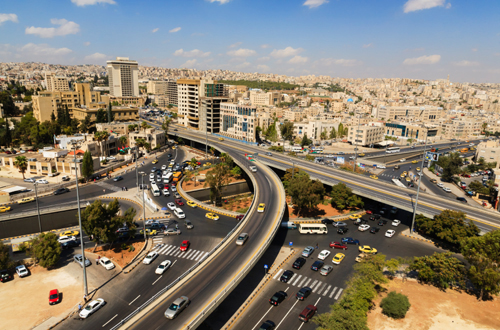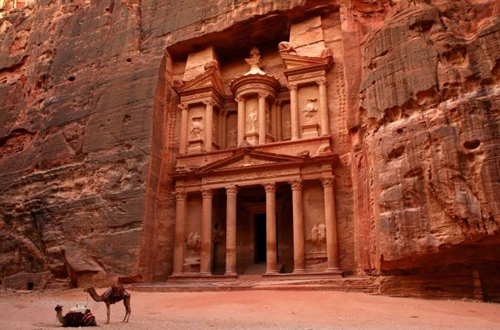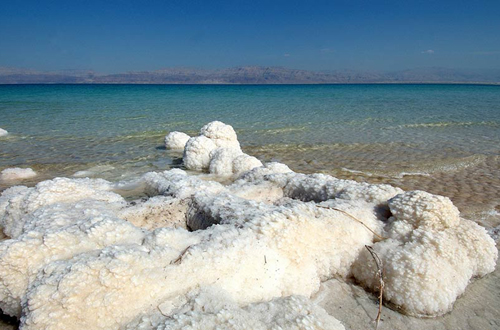Jordan Media City

State and Government
The Hashemite Kingdom of Jordan is a constitutional monarchy, ruled since 1952 by His Majesty King Hussein. With the passing of the monarch in February of 1999, the King's eldest son, His Majesty King Abdullah, ascended the throne. In Jordan, executive power is vested in the Council of Ministers which is appointed by the King, and which is accountable to a two house parliament. The 60 members of the Upper House are appointed by the King, while the 150 deputies of the Lower House are elected by popular vote.
Since 1989 all elements of the Jordanian political spectrum have demonstrated commitment to increased democracy, liberalization and consensus building. These reforms, which have been guided by the late King Hussein, have placed Jordan on an irreversible path toward democratization.
The result has been greater empowerment and involvement of everyday citizens in Jordan's civic life, contributing to increased stability and institutionalization, which will benefit the county far into the future.
The remarkably stable political and social climate that Jordan has enjoyed for decades under the Hashemite Dynasty continues to thrive under His Majesty King Abdullah's leadership. The new King has undertaken his father's legacy of reform, committing his country to the goals of privatization, economic liberalization, and modernization of the law.
Geography & History
Strategically positioned at the convergence of Europe, Asia and Africa, Jordan's 89,342 square kilometers present a diversity of landscapes. From the hills and mountains of the geographic center of Jordan, the Badia Plains extend in an eastward direction into Saudi Arabia. The Jordan River, flowing through the fertile Rift Valley, forms Jordan's western boundary and terminates in the Dead Sea. This body of water lies at the lowest point on earth, 400 meters below sea level. To the south, the Port of Aqaba provides Jordan with a gateway to the Red Sea
Population
Jordan's population of 9.5 million is 69.4% Jordanian and 30.6% non-Jordanian. Gender distribution is fairly even at 52% male, 48% female. The country is young, with 40% of the population under the age of 15, and only 3% over the age of 65.
Islam is the predominant religion. 92% of the people are Sunni Muslims. 6% are Christian, while the remainder are Shia Muslims, Sunni Circassians, Chechens, Druze, and Bahai. The Muslim New Year and other Islamic holy days are public holidays.
Language
Arabic is the official language, but English is spoken widely especially in business.
Currency
The unit of currency is the Jordanian Dinar (JD), and the rate of exchange is 1 JD = 1.42 US $.
Time
Time is GMT + 2 (in winter, +3 in summer), or 7 hours ahead of US Eastern Standard Time. Summer time is observed from April through September.
Working Days & Hours
Most private businesses observe Friday as the weekly holiday, while banks and government offices close on Fridays and Saturdays. Jordanian labor law limits most workers to 48 hours per week, the exception being hotel, restaurant and cinema workers with 54 hours. Annual paid leave is 14 days, 21 for workers over five years with the same employer.
Latest News
MYSAT GO now broadcasts 83 Arabic Live TV channels, with Interactive Program guide, 8 hours Time shifting, Catchup TV Service with 30 days, VOD for ART Arabic movies
Projects
Studio Lighting of one of the studios had been upgraded into LED in 2019, and will upgrade the rest of the studios by Year 2024
Jordan Media City
Contact
JORDAN MEDIA CITY
Building No. 41 - Al Sakhrah Almusharafah St. , Um AL-Heeran / Amman - Jordan
Contact
Tel: (+962) 6 5502700
Fax: (+962) 6 5502710
E-mail: info@jmc.com.jo
P.O.Box : 110024 Amman 11110 Jordan



